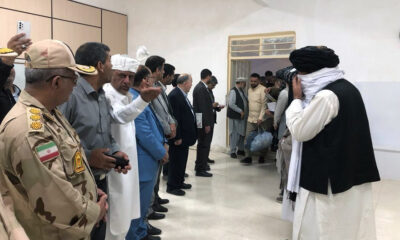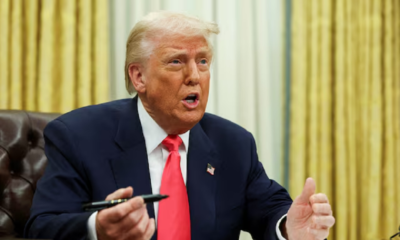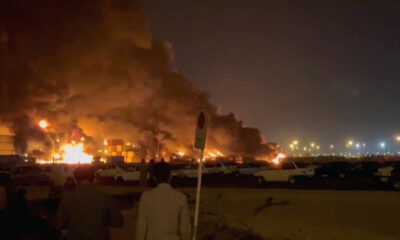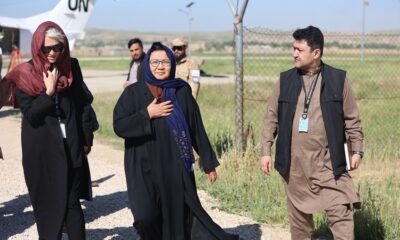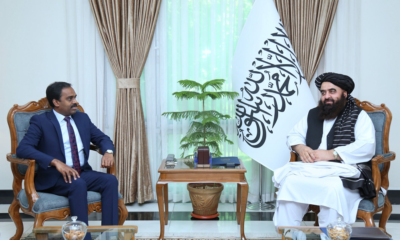Latest News
UNAMA chief delivers stark report to UN Security Council
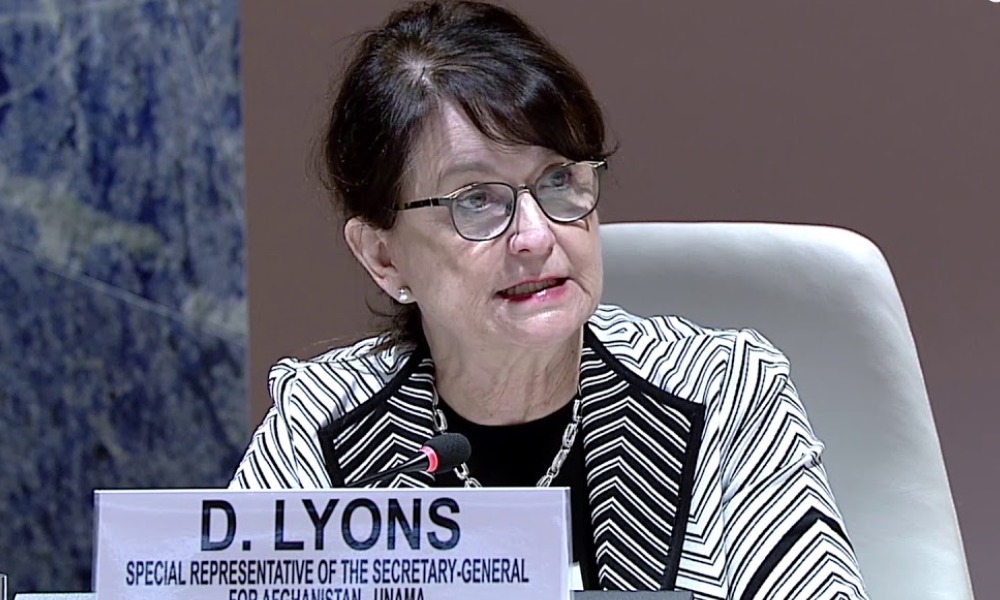
United Nations Assistance Mission in Afghanistan (UNAMA) chief Deborah Lyons sounded the alarm on Tuesday when she told the UN Security Council that soaring rates of violence continue to hamper humanitarian efforts in the country.
She said that six months into Afghanistan’s latest round of peace talks, progress remains slow and demands strong support from the global community.
“We always knew that this would be a complicated peace,” said Deborah Lyons, as she briefed the 15-member Council during a videoconference meeting.
Describing Tuesday’s meeting as a chance to take stock six months after the launch of the Afghanistan Peace Negotiations, the signing of an agreement between the United States and the Taliban and a joint declaration between Kabul and Washington, D.C., she said attacks against civilians have only escalated.
The extreme violence is leading both Afghans and their international partners to voice understandable frustration. “The killings, the displacement, the suffering of the Afghan people must end now,” she stressed.
Noting that the first two months of 2021 saw a worrying spate of brutal attacks deliberately targeting civilians. She said the deaths of more than 80 Afghans — including media staff, civil society, members of the judiciary, religious scholars and government officials — have been recorded to date.
“This does not convey the full, crippling impact of the violence on Afghanistan’s civic life,” she said, adding that for every Afghan killed, many more leave their professions or plan to flee the country.
She also stated that ISIS-K (Daesh) claimed responsibility for 25 violent attacks in the last quarter, a steep increase, and she highlighted a deepening humanitarian crisis and the threat of drought. Food insecurity is at record levels, with more than 40 per cent of the population at emergency and crisis levels, she said..
Against that backdrop, she called on the international community to contribute generously to the humanitarian response plan, which is only six percent funded, while warning that money alone is not enough.
She also said humanitarian workers continue to be targeted by threats and violence, and the impartial delivery of aid is obstructed.
Emphasizing that such acts are illegal and unjustifiable, she recalled that she recently raised those issues with Taliban leaders and her office has been working with the Afghan government to ensure its legislative framework protects the space of non-governmental organizations carrying out humanitarian work.
She said all these developments are taking place against the backdrop of slowing progress in the peace talks in Doha. She said both sides need to continue to show their commitment to remaining at the negotiating table.
Welcoming the appointment of Jean Arnault of France as the Secretary-General’s new Personal Envoy on Afghanistan and Regional Issues, she said Member States have also played a vital role in coming up with new initiatives to reinvigorate the peace process.
Pointing to a proposed meeting in Turkey as another such opportunity, she stressed that such initiatives must be focused, coherent and, above all, they must reinforce rather than undermine the Doha negotiations.
According to Lyons, decades of conflict have created real grievances on all sides, as well as a deep lack of trust among the parties.
She also said there are genuine and profound differences between the Afghan Republic and the Taliban’s desired end State.
Addressing those issues will continue to require patience and commitment on both sides, she said, adding that any lasting peace settlement must consider the views and concerns of all Afghans and not just those of an elite few.
She said she hopes by her next briefing to the Security Council real progress would have been made.
Lyons stated that she hopes by June, there would have been at least a substantial de-escalation of violence, if not a ceasefire.
While those developments could mark a real turning point, the road ahead is still not clear and “we are moving into a period of great uncertainty, she said.
Shaharzad Akbar, Chairperson of the Afghan Independent Human Rights Commission, also briefed the Council, stressing that the war in Afghanistan remains one of the world’s deadliest conflicts for civilians.
She said the onslaught of attacks has further diminished the country’s civic space, leading to self-censorship for journalists, human rights defenders and religious scholars, and thus impacting the quality of public engagement and debate on issues critical to Afghanistan’s present and future.
Akbar also stated that the country’s peace talks remain dominated by a group of elite men, some of whom have themselves been responsible for perpetuating violence.
“Building peace takes more than a deal among elites,” she said, calling for a more inclusive national endeavour that ensures the participation of women, minorities, youth, civil society and the vibrant Afghan media, as well as victims.
A minimum of 30 percent of the participants in the peace talks should be women, and more steps are needed to achieve full gender balance in the future, she said.
“At the recent conference in Moscow, I, like many Afghan women, was shocked and angered to see only one Afghan woman, Dr. Habiba Sarabi, in a room full of men discussing the future of my country,” she said.
Afghan women have fought for their human rights for many decades, and have made considerable progress in education, employment and political participation. They are experts everywhere, from the fields of politics to public administration, security, business, science and information technology.
Excluding or marginalizing them from the main discussions about the future of Afghanistan is not only unjust and unacceptable, but unwise and unhelpful to a lasting peace, she said.
Latest News
Afghanistan and Iran swap prisoners at Milak border crossing
At the same time, two Iranians serving sentences in Afghan prisons were repatriated to Iran.
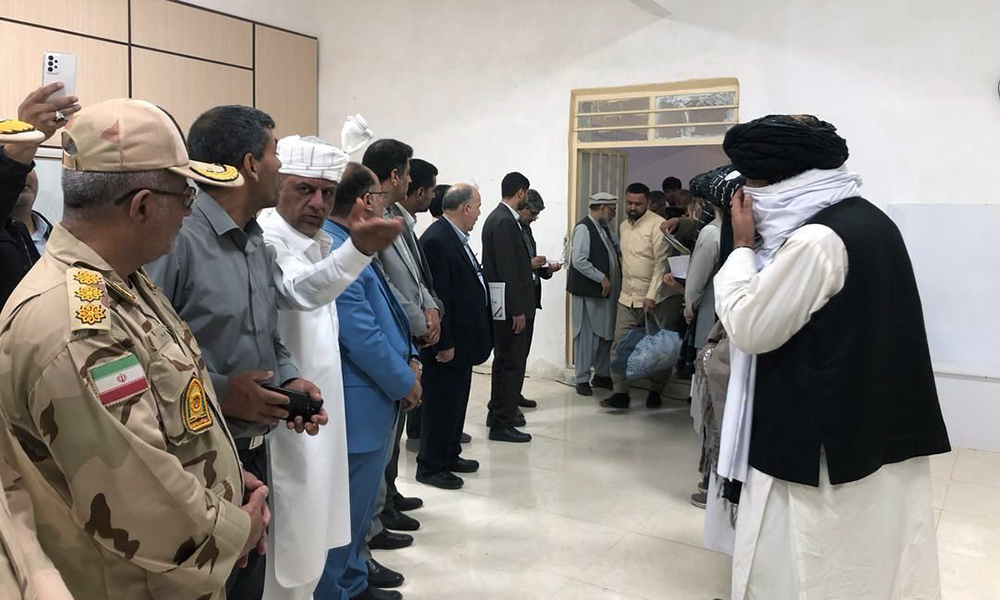
Afghanistan and Iran exchanged prisoners at the Milak border crossing in south-eastern Iran on Sunday, officials confirmed.
According to IRNA, almost 200 Afghan prisoners held in Iranian prisons in Tehran, Sistan and Baluchestan and Isfahan were handed over to Afghan authorities at the Milak border in Sistan and Baluchestan.
At the same time, two Iranians serving sentences in Afghan prisons were repatriated to Iran.
Iran’s Deputy Justice Minister for Human Rights and International Affairs, Askar Jalalian, said recently that more than 4,500 foreign nationals detained in Iran had been sent to their home countries.
Latest News
UNAMA chief visits northern Afghanistan, meets local officials including women
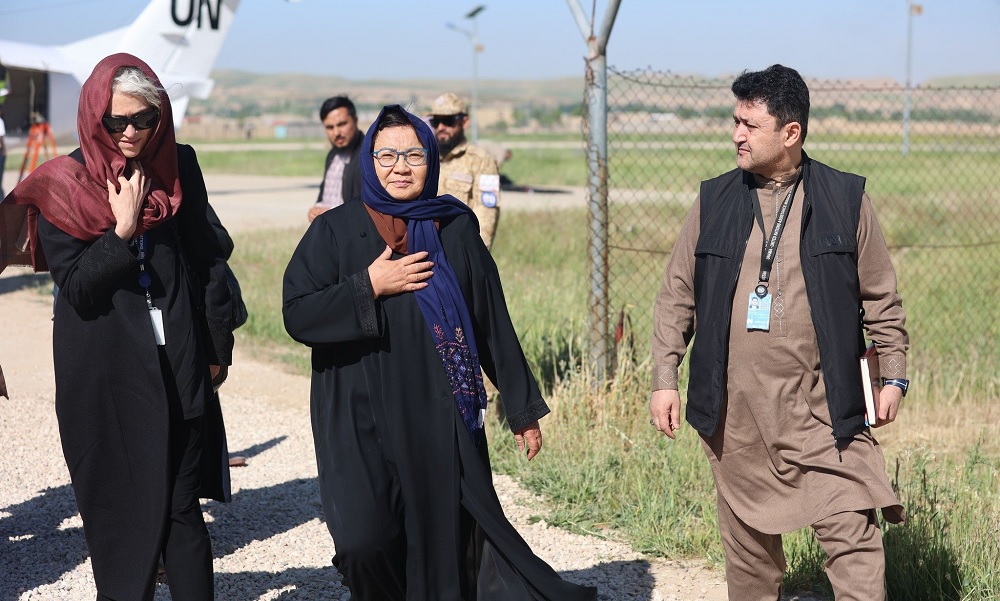
Roza Otunbayeva, Head of the United Nations Assistance Mission in Afghanistan (UNAMA), recently visited the city of Maimana in northern Afghanistan, where she met with local officials, entrepreneurs, and UN staff.
UNAMA wrote on its Facebook page on Sunday, that during the visit, entrepreneurs — including women — met with Otunbayeva, and requested support to facilitate access to new markets, particularly in Uzbekistan.
UNAMA further stated that among these entrepreneurs was a group of women who, with the support of the United Nations Development Programme (UNDP), had established a tailoring workshop.
They expressed their appreciation for the support received and spoke about the significant growth and development of their business.
UNAMA added that the organization remains committed to promoting economic opportunities and empowering Afghan communities, especially women.
Latest News
Senior Indian official meets with FM Muttaqi in Kabul
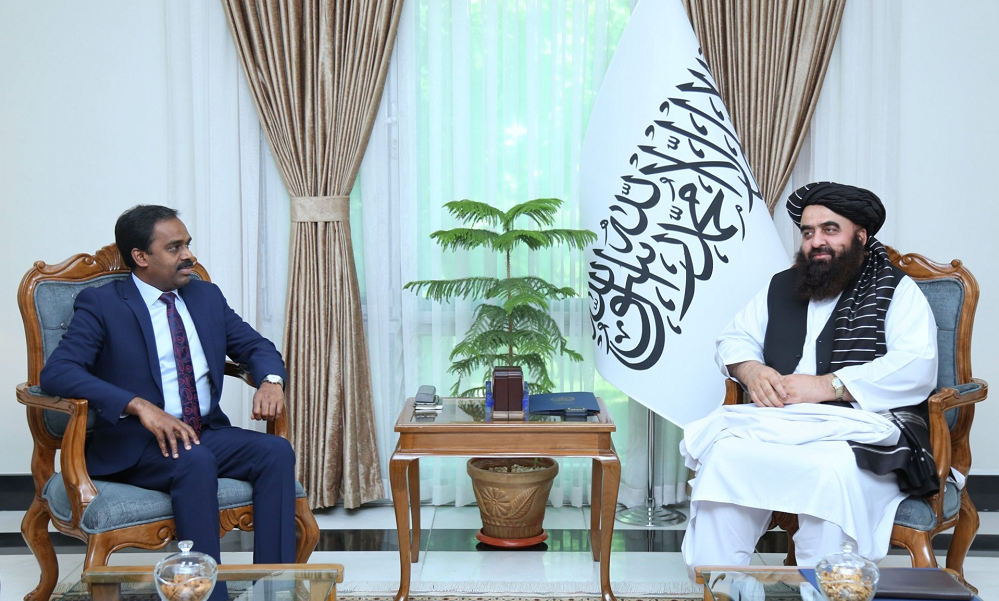
Anand Prakash, head of the Afghanistan, Iran and Pakistan Division of the Indian Ministry of External Affairs, met with Acting Foreign Minister Amir Khan Muttaqi in Kabul for talks on various issues.
According to a press release issued Sunday by the Afghan Foreign Ministry, bilateral political relations, trade, transit and recent political developments in the region were discussed in the meeting.
Muttaqi stressed the need for the expansion of diplomatic and economic relations between the two countries and explained that Afghanistan currently offers favorable opportunities for investment. He said Indian investors should take advantage of these opportunities.
He also said that facilities should be created for the movement of people between Afghanistan and India and the issuance of visas for medical purposes, students and businessmen should return to normal.
Meanwhile, Prakash said that relations with Afghanistan are important for India and he hopes that these relations will expand further in various fields.
He stressed that India will continue its cooperation with Afghanistan and wants to invest in some infrastructure projects and restart projects that were paused for some time.
The two sides also emphasized the expansion of relations, the exchange of delegations, visa facilitation and bilateral cooperation.
-

 Sport5 days ago
Sport5 days agoSri Lanka A defeats Afghanistan A by 4 wickets in Abu Dhabi
-

 Business5 days ago
Business5 days agoAfghanistan’s growth prospects remain uncertain amid global uncertainty: World Bank report
-

 Latest News4 days ago
Latest News4 days agoAWCC activates new site in Nangarhar’s Kuz Kunar district
-

 Latest News4 days ago
Latest News4 days agoTarig Ali Bakheet and Japan’s Deputy Foreign Minister discuss Afghanistan’s situation
-

 Climate Change5 days ago
Climate Change5 days agoPowerful earthquake of 6.2 magnitude shakes Istanbul
-

 Business4 days ago
Business4 days agoPakistan’s deputy PM discusses Trans-Afghan Railway Line project with Uzbek FM
-

 Latest News5 days ago
Latest News5 days agoSpecial meeting will be held to launch Afghanistan–Russia joint commission, says Kabulov
-
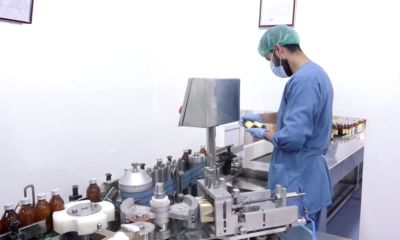
 Latest News3 days ago
Latest News3 days agoAfghanistan’s medicine output reaches 900 types: Pharma Union


